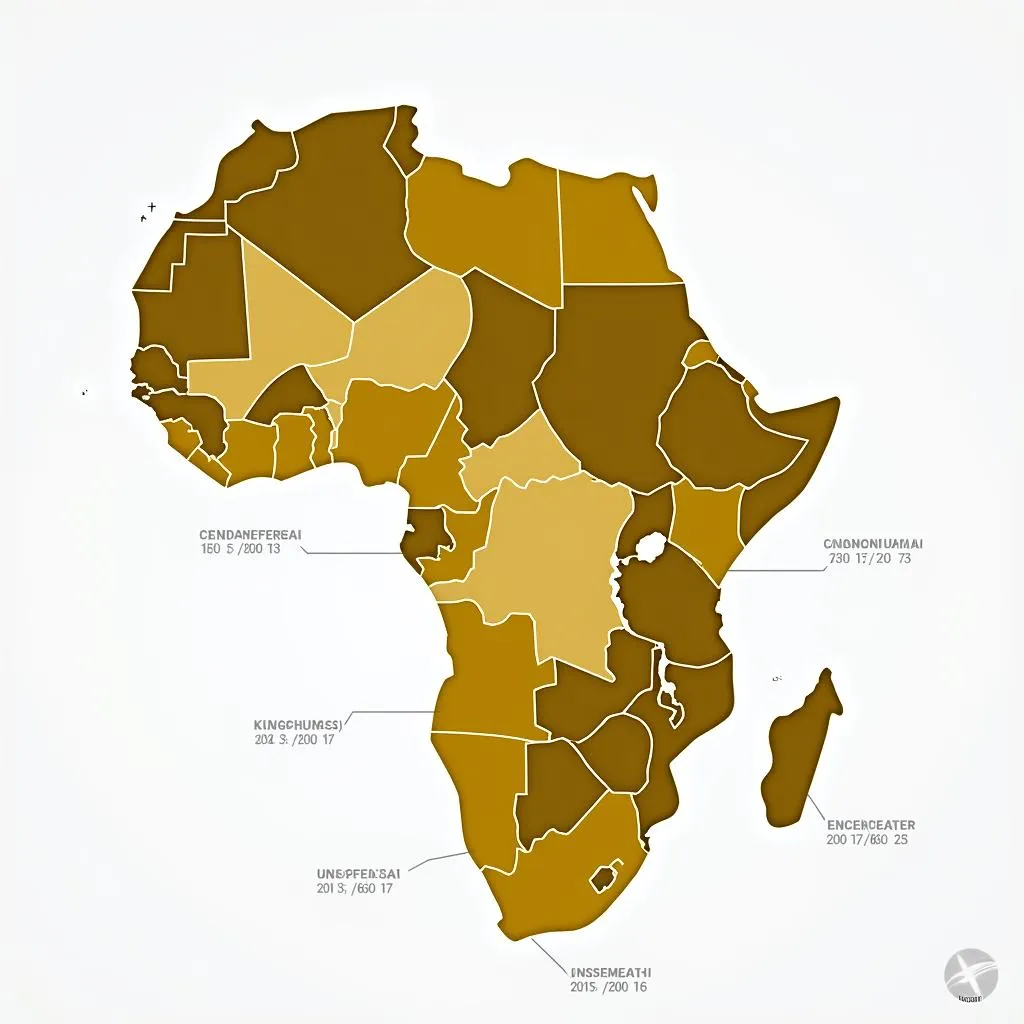The African Independence Movements Quizlet: A Journey Through History
The African independence movements were a pivotal chapter in the continent’s history, marking the end of colonial rule and ushering in a new era of self-determination. Understanding these movements is crucial for comprehending the complexities of contemporary African politics, culture, and society.
The Rise of Nationalism in Africa
The seeds of African nationalism were sown during the colonial era. The imposition of European rule, with its discriminatory policies and exploitation of resources, fueled resentment and a desire for independence. Various factors contributed to the growth of nationalist movements:
- Education and Exposure to Western Ideas: The introduction of Western education exposed Africans to Enlightenment ideals of liberty, equality, and self-governance.
- World War II: The war, which saw Africans fighting alongside Europeans, raised questions about equality and the legitimacy of colonial rule.
- The Cold War: The ideological struggle between the Soviet Union and the West fueled the desire for independence, as newly independent African nations were seen as key allies in the global power game.
- The Pan-African Movement: Pan-Africanism, with its emphasis on unity and solidarity, fostered a sense of shared destiny among Africans and provided a platform for organizing independence movements.
Key Independence Movements
The African independence movements were diverse, reflecting the unique circumstances of each colony. Some key examples include:
Kenya
- Mau Mau Uprising (1952-1960): This armed rebellion against British rule was a brutal and bloody struggle for independence. The movement’s tactics, which included guerrilla warfare, led to widespread repression by the colonial government.
- Jomo Kenyatta: Kenyatta, a key figure in the Kenyan nationalist movement, emerged as the country’s first president after independence in 1963.
Algeria
- Algerian War of Independence (1954-1962): This bloody conflict, fought against French colonial rule, resulted in the independence of Algeria in 1962.
- FLN (National Liberation Front): The FLN was the main organization leading the Algerian fight for independence.
Ghana
- Kwame Nkrumah: Nkrumah, a charismatic leader, spearheaded the fight for Ghanaian independence, which was achieved in 1957. He became the first president of Ghana.
- Convention People’s Party (CPP): Nkrumah’s CPP was instrumental in mobilizing the Ghanaian population for independence.
South Africa
- African National Congress (ANC): Founded in 1912, the ANC became the leading force in the fight against apartheid, a system of racial segregation and discrimination.
- Nelson Mandela: A key figure in the ANC, Mandela spent 27 years in prison for his activism against apartheid. He was released in 1990 and became South Africa’s first black president in 1994.
The Legacy of the African Independence Movements
The African independence movements left an indelible mark on the continent. They ushered in a new era of self-determination, but they also presented challenges:
- Political Instability: Many newly independent nations faced political instability and violence, as different groups competed for power.
- Economic Challenges: Independence often meant inheriting weak economies, exacerbated by colonial exploitation and a lack of infrastructure.
- Ethnic Conflicts: The colonial legacy, which often created artificial boundaries, exacerbated ethnic tensions and contributed to conflict in many countries.
How the African Independence Movements are Relevant Today
Understanding these movements is important for understanding the complexities of contemporary African politics, culture, and society. It’s not just a matter of history; it’s about appreciating the ongoing efforts to build strong and stable nations, address the legacy of colonialism, and promote development and prosperity.
“The independence movements were a testament to the resilience and determination of the African people, who fought for their freedom and dignity,” says Dr. Abena K. Agyeman, a renowned historian and expert on African history. “It’s crucial for us to remember their sacrifices and to continue to learn from their struggles.”
FAQ
1. What were the main reasons for the African independence movements?
The main reasons were a desire for self-determination, resentment against colonial rule, and exposure to Western ideas of freedom and equality.
2. What were some of the key challenges faced by newly independent African nations?
Challenges included political instability, weak economies, and ethnic tensions.
3. How did the Cold War influence the independence movements?
The Cold War rivalry between the Soviet Union and the West led to support for independence movements, as newly independent African nations were seen as potential allies.
4. What is the significance of the African independence movements today?
Understanding these movements is vital for understanding the complexities of contemporary African politics, culture, and society.
5. How can we learn from the legacy of the African independence movements?
By studying these movements, we can gain valuable insights into the importance of self-determination, the challenges of post-colonial development, and the enduring effects of colonialism on African societies.
6. How do we promote the legacy of the African Independence Movements?
We can promote the legacy of the African Independence Movements by:
- Educating ourselves about the history and the struggles of the African independence movements.
- Supporting organizations working to promote peace, democracy, and development in Africa.
- Celebrating the achievements of African leaders and activists who fought for independence.
- Challenging colonial narratives and promoting a more nuanced understanding of Africa’s history.
7. What are some recommended resources for learning more about the African independence movements?
- The Africa History Project: A comprehensive online resource with information on African history, including the independence movements.
- The African Studies Center at Harvard University: A research center dedicated to the study of Africa, with a rich collection of resources on the independence movements.
- The African Union: The official website of the African Union, providing insights into the continent’s history and current affairs.
 Map of African Independence Movements
Map of African Independence Movements
Let’s Celebrate the Triumph of Freedom
The African independence movements represent a triumph of the human spirit. They remind us of the enduring power of hope, resilience, and the pursuit of freedom and justice. It’s a story that deserves to be told and celebrated.


